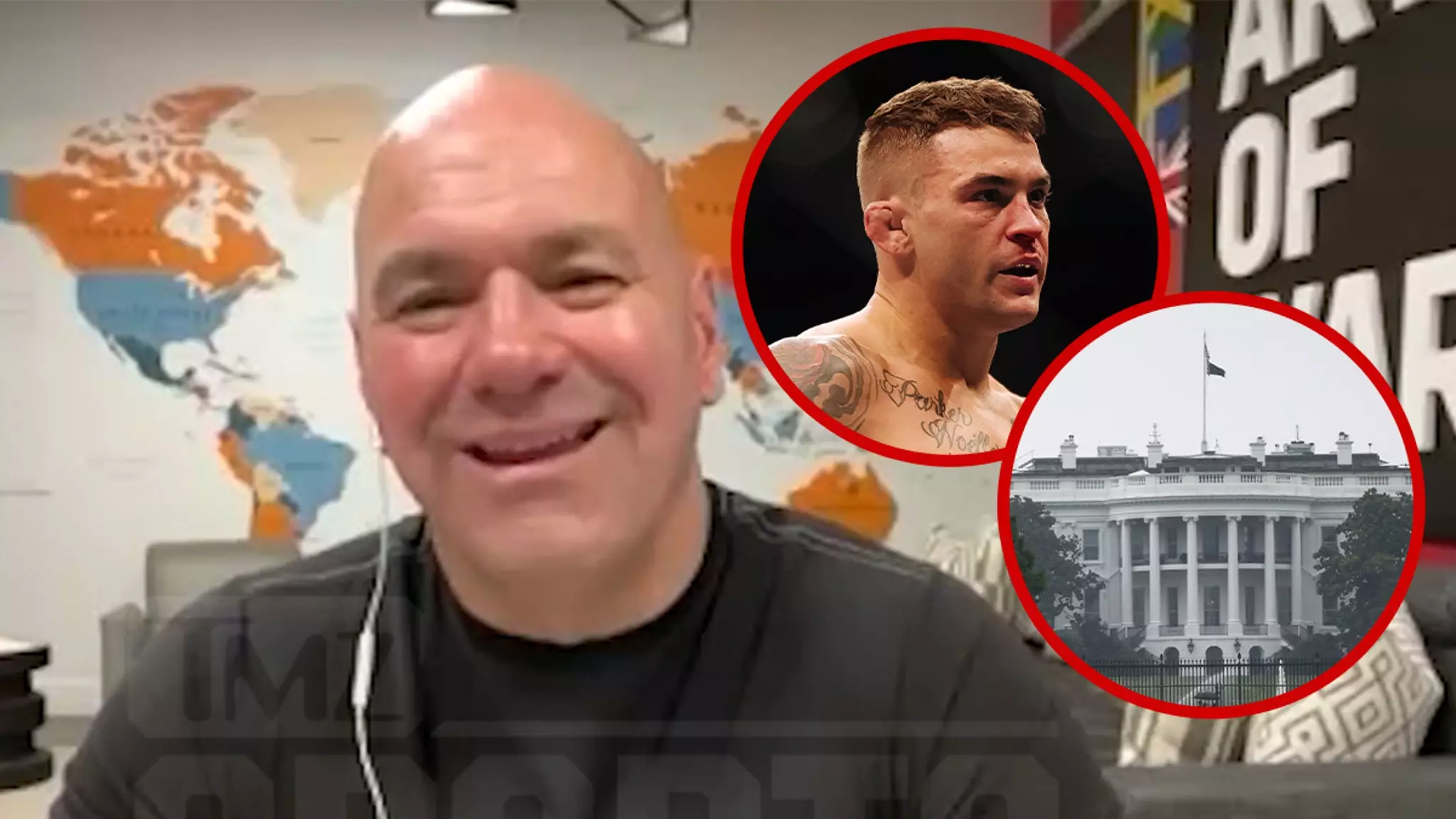The notion of UFC fighters gracing the steps of the White House signals more than just a promotional stunt; it represents a seismic shift in how mixed martial arts is perceived within the cultural fabric of the United States. Dana White’s confident assertion that an event at 1600 Pennsylvania Avenue is “almost finalized” demonstrates a newfound ambition to elevate MMA beyond its typical ring-bound confines. While some purists may dismiss this as a publicity ploy or a political spectacle, it undeniably highlights a sport that has grown in both popularity and legitimacy—mature enough to warrant such moments of national significance.
This proposed event is scheduled for July 4, 2026, coinciding with the United States’ 250th independence anniversary. It’s a symbolic choice that aligns the sport’s progressive leap with the patriotic milestone, suggesting MMA’s arrival as a recognized and celebrated part of American history. This isn’t merely about entertainment; it’s about shaping the narrative of combat sports as a patriotic, unifying force capable of bringing Americans together on a historic public stage. If successful, it cements MMA’s place in the pantheon of national symbols alongside baseball, football, and the military parade.
Political and Cultural Implications
Hosting this event at the White House signifies more than just logistical challenges; it reveals a complex interplay between sports, politics, and national identity. Dana White’s admiration for President Trump’s philosophy—that the White House belongs to the American people—resonates deeply, as it reflects an effort to frame the event not as a partisan spectacle but as a communal celebration. It’s noteworthy that White plans to personally meet with Trump to finalize the event, emphasizing a level of diplomacy and cooperation rarely seen in sports enterprises of this magnitude.
However, this move also invites scrutiny. Historically, the White House has hosted sports events and ceremonial occasions, but none have featured MMA fighters inside its walls. The security considerations are colossal; the logistical planning must be meticulous to ensure safety without disrupting the venue’s sanctity. Critics might argue that the spectacle risks politicizing the sport or turning the White House into a backdrop for promotional branding, yet supporters will see it as an innovative way to boost MMA’s cultural capital.
Moreover, this initiative can be viewed as an extension of Trump’s own branding of patriotism and national pride. The event acts as a convergence point between entertainment and political symbolism, uniting the nation around a shared spectacle. It’s a bold gamble that might redefine how sports intersect with national identity, pushing MMA into a platform traditionally reserved for more established sports.
Star Power and Future of MMA Spotlight
White’s acknowledgment that fighters like Conor McGregor and Jon Jones are already eyeing spots on the card underscores the event’s potential to galvanize star power. The anticipation of high-profile matchups at such a historic venue could elevate fighters’ statuses and inspire a new generation of fans. While some may argue that MMA needs more time to develop such traditions, White’s confidence suggests he views this as a pivotal step toward mainstream respectability.
Furthermore, White’s involvement in other combat sports ventures—like the upcoming boxing match between Canelo Alvarez and Terence Crawford—illustrates his broader vision to dominate combat sports globally. This multifaceted strategy signals that MMA is no longer content with just being a major boxing rival but aims to be the overarching combat sports leader. The White House event could serve as a catalyst, bridging the gap between mainstream sporting events and political acceptance.
Lastly, the concept of fighters competing in marquee fights in the lead-up to the main event not only stokes excitement but also revitalizes interest in the sport’s sportmanship and competitive essence. Showcasing stars in key battles—such as Dustin Poirier’s farewell or trilogy fights—reinforces the importance of MMA narratives as cultural storytelling. Dana White’s ambitions appear to be positive: transforming MMA from a combat spectacle into a profound symbol of American ingenuity and resilience.
This audacious plan to host a UFC event at the White House isn’t merely about boosting ratings or garnering headlines. It’s a deliberate act of cultural assertiveness, an effort to embed MMA deeper into the national consciousness, and possibly—a bold step toward redefining what it means to celebrate sport and patriotism in contemporary America.

